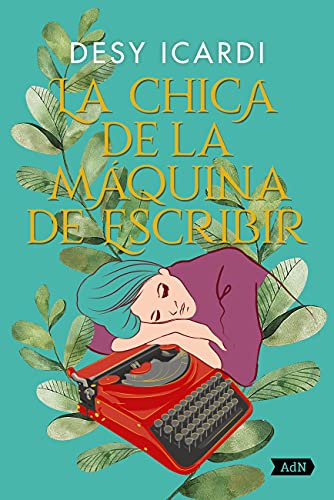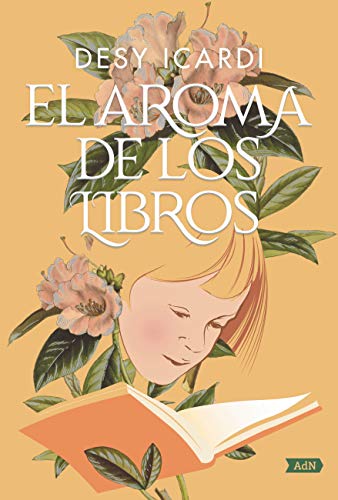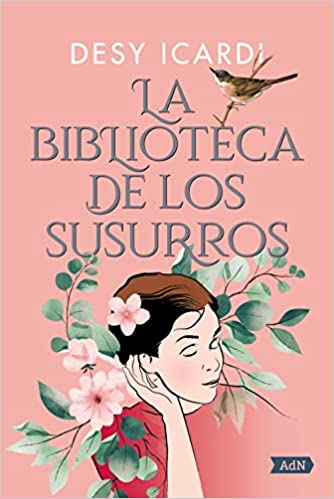What of the italian writer Desy Icardi is metaliterature. Her plot imprint surrounds the fact of literature and the craft of writing as something almost magical. Something that can only be explained seen from various planes that support, and ultimately complement, the notion of what it means to narrate any area of the human.
Because in dialogue one finds the reply while in writing the dialogue is deferred, postponed until another mind recomposes from the signs that are the letters, a whole wonderful meaning that opens up in the imagination like a new universe painted with new colors.
So Desy's entrustment is not an irrelevant matter. With a point of freshness and lightness that on many occasions takes us back to childhood, to learning to read, her works lead us through the interstices beyond the seams of the current plots. Literature as life, almost as soul or spirit. Stories that reach us and that always justify the action of reading as something transformative.
Top 3 recommended novels by Desy Icardi
The girl with the typewriter
Who writes, the mind or the fingers? They are the ones who perform the final dance on the keyboard, with their frenetic cadence or trying to move forward despite the traffic jam. The fingers of the writer are in charge of automating to the sound of the click what the imagination presents.
In my internship times I had to go to a newspaper to insert classified ads. I was crazy how the young woman at the controls of the computer transcribed the message, cigarette between her lips, with a devilish rhythm. Perhaps she could have written a great novel instead of inserting advertisements at 100 pesetas a word. In fact, everything depends on spirited and wise fingers capable of combining the most appropriate keys...
From a very young age, Dalia has worked as a typist, going through the 1th century always accompanied by her portable typewriter, a red Olivetti MPXNUMX. Now old, the woman suffers a stroke that, although not fatal, eclipses part of her memories. Dalia's memories, however, have not vanished, they survive in the tactile memory of her fingertips, from which they can only be released in contact with the keys of the red Olivetti.
Through the typewriter, Dalia thus goes through her own existence: the loves, the sufferings and the thousand stratagems that are used to survive, especially during the years of war, resurface from the past, restoring to her a vivid and surprising image of herself. , the story of a woman capable of overcoming difficult decades, always with her head held high, with dignity and good humor. However, a unique and important memory of her escapes her, but Dalia is determined to find it by following the clues that chance, or perhaps destiny, has scattered along her path.
The narration in search of the lost memory is enriched page after page with sensations and images linked to curious vintage objects: the protagonist of the book will also find her memory thanks to this type of clues, which appear each time in unexpected places, in a kind of search of the imaginary treasure, between reality and fantasy.
After The aroma of books, about the sense of smell and reading, an exciting novel about touch and writing, a journey of recovery of the life of a woman in the footsteps of the only memory worth keeping.
the scent of books
After the wonderful story of Jean-Baptiste Grenouille, the perfumer without his own scent, comes this story that delves into the disconcerting sense and instinct of smell. The most intense memories are aromas and the question is to decipher if something escapes us about smell, far beyond simple smells...
Turin, 1957. Adelina is fourteen years old and lives with her aunt Amalia. Between the school desks, the girl is the laughing stock of the class: at her age she doesn't seem capable of remembering the lessons. Her severe teacher gives her no respite and decides to have Luisella, her brilliant classmate, help her in her study.
If Adelina begins to do better at school, it will not be thanks to the help of her friend, but to an extraordinary gift with which she seems to be endowed: the ability to read with her sense of smell. This talent represents, however, a threat: Luisella's father, a notary involved in not entirely clear business, will try to use her to decipher the famous Voynich manuscript, the most mysterious codex in the world.
the library of whispers
The most comfortable silence is found with a good read. The inner dialogue achieves its greatest and best effects induced by a reading capable of setting that necessary recollection. A recollection in which loneliness rocks until time is suspended and, above all, external and internal noises...
On the outskirts of Turin, in the seventies, there is a house by the river where everything is done as noisily as possible: pots clatter on the stove, footsteps echo in the corridors, the radio squawks, the furniture creaks. We are in the seventies and little Dora lives in this noisy environment with her whole family, among which her eccentric great-aunt stands out.
One day, however, this strange but comforting balance is interrupted by mourning; the house suddenly becomes sad and silent and, just as quickly, Dora begins to hear disturbing noises. To escape from this oppressive atmosphere, the girl finds refuge in a place where a silence reigns that is not a manifestation of melancholy, but of respect and recollection: the library. Here Dora will meet the "centennial reader", the lawyer Ferro, who has dedicated his entire existence to books and who decides to put the girl under her protection to educate her in the pleasure of reading.



